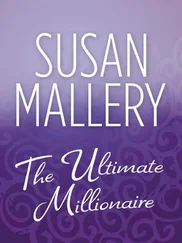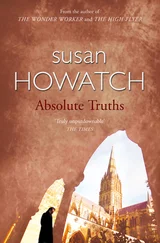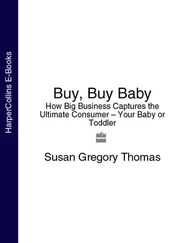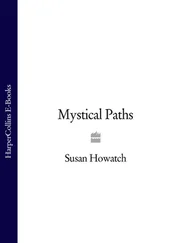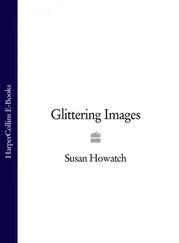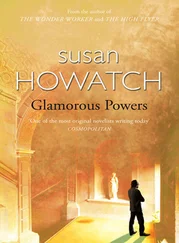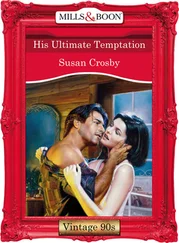‘Charlotte says you’re a Protestant, not a Catholic, which is most confusing as I thought the whole point of the Reformation in England was that we got rid of the Catholics, said “Yah!” to the Pope and lived happily ever after as the Protestant Church of England. Why are these Catholics still around? Anyway I’m glad you’re a Protestant, Protestant services are so deliciously austere and I’ve never been keen on all those flamboyant candlelit genuflections and horrid smells which the Church of Rome finds so essential.
‘Charlotte also said you were a Liberal Protestant, which sounds so enlightened, though I’m told “Liberal” in religion isn’t the same as “Liberal” in politics, which is just as well since the political Liberals are nearly extinct. Finally Charlotte said you were a Modernist , which sounds thrillingly wild and abandoned, like those artists who throw a pot of paint at the canvas and call the result A SUNNY AFTERNOON IN THE BOIS DE BOULOGNE. Now Archdeacon dear, do tell: what do all these exotic Church labels really mean? ’
By this time I was so enjoying the task of expanding her intellectual horizon that I savoured her letter for an entire week while I reflected on my reply. Finally after a friendly opening paragraph I wrote:
‘… and now let me address myself to your enquiries. The Reformation did indeed re-form the Church in England into the Church of England, but although Catholicism was greatly purged during the following decades it was never eliminated. It had a strong resurgence in the last century (the phenomenon was known as the Oxford Movement) and even today, although most of the Church is Protestant there is a powerful, vocal and influential Anglo-Catholic minority. The pertinent word here is “Anglo”. They’re our own home-grown breed of Catholics, loyal to the Church of England and owing no allegiance to the Pope. However, they’ve become increasingly keen on the idea of reunion with Rome, a pipe-dream which I’m bound to say I believe to be not only Utopian but misguided.
‘This Anglo-Catholic group is known as the High-Church party. Opposite them on the other wing of the Church are the Protestant Evangelicals, also known as the Low-Church party, another powerful and vocal group which unfortunately has suffered from indifferent leadership during this century. This no doubt helps to explain how the Anglo-Catholics have managed to grab power in so many important places, but the Evangelicals will rise again and put the Anglo-Catholics back in their place, of that I’m quite sure. Catholicism is fundamentally alien to the British temperament. The tradition of the stiff upper lip, the modest understatement and the horror of foreigners is incompatible with a tradition of embarrassing emotion, ritualistic excesses and the ethos of Southern Europe.
‘In between these two militant wings lie the middle-of-the-road moderates who constitute the majority of church-goers. The services I conduct are aimed at this majority although I do incline to Low-Church practice. Certainly nothing would induce me to dabble with incense, auricular confession, perpetual reservation of the Sacrament or any other cause so dear to the Anglo-Catholic heart.
‘I should perhaps explain here that the Evangelicals play down the importance of the Liturgy (the centrepiece of Anglo-Catholic worship) and play up the importance of the Bible and the sermon. Nonconformist Evangelicals (those Protestant sects which don’t belong to the Church of England, such as the Methodists and the Baptists) can be fatally bibliolatrous (that is to say, they often believe every word of the Bible to be literally true) but in the Church of England, which places such a high value on enlightened scholarship, I’m glad to say that such a crude approach to religious truth is rare. Although I’m a Low-Churchman by inclination I have always insisted that my religion be compatible with the best modern scholarship – and that, my dear Miss Tallent, brings me to MODERNISM.
‘Modernism cuts across all parties in the Church of England. It also existed in the Roman Catholic Church (in a far more extreme form, I may add, than it existed among the Protestants) but the trend was exterminated by Papal decree earlier in this century. In other words, it’s as possible to be a High-Church Modernist as it is to be a Low-Church Modernist. Modernism is less a creed than an attitude of mind.
‘In short, we believe in reinterpreting Christianity in the light of modern knowledge. Consequently we welcome all scientific advances – in geology, anthropology, psychology, chemistry, physics and so on – and use them as a springboard to an expanded spiritual enlightenment. This leads, inevitably, to the expression of theological views which startle conservative people in all parties of the Church and scandalize the ordinary layman – with the result that Modernists are occasionally accused of heresy. This is usually quite unjustified. All genuine Modernists (and here I discount the eccentric crackpots who give the movement a bad name) hold fast to the Divinity of Christ, the Resurrection and the concept of Eternal Life. They are therefore orthodox believers. But exactly how Jesus was the Son of God and in what manner he was resurrected and in what sense one is to interpret “Eternal Life” – these are questions which the Modernists hold are open to constant revision in the light of modern knowledge. For example, Modernists don’t believe in miracles; they don’t believe in anything which contradicts the scientific order. But they still believe that Jesus was the sort of man whom people believed capable of performing miracles; they still believe in the absolute centrality of Christ to the Christian faith.
‘Because the Modernist movement is based on an attitude of mind and not a creed, there’s a large amount of disagreement among us. Some Modernists believe that women should be ordained, for example, but in my opinion such a view is too extreme. I always take care to be moderate and sensible in my Modernism so as not to give needless offence to my superiors. It’s well known that Raven’s support of the ordination of women has cost him a bishopric. When extreme views are under consideration, one always has a moral duty to discern where to draw the line.
‘To sum up, my moderate Modernism complements the so-called Liberal Protestant theology which evolved among enlightened Victorians. I believe (and this belief chimes with Darwin’s work) that the world is evolving steadily in accordance with God’s purpose for mankind, a purpose which is fundamentally good and benign. I believe that sin and evil aren’t as important as man’s basic goodness, the goodness which is exemplified for all time by Our Lord Jesus Christ. I believe that God is immanent in this world and that the Holy Spirit is present as a spark in every member of mankind.
‘Because of my adherence to such beliefs I strongly disapprove of the new school of theology which is trying to displace the glory and the nobility and the intellectual quality of Liberal Protestantism with an anti-intellectual, pessimistic, degrading approach to God’s creation. This neo-orthodox school (I use the word neo-orthodox because the theology is in some ways a barbarous reversion to old-fashioned Calvinism) is also known as the theology of Crisis (the word “Crisis” being used in a somewhat technical sense and meaning that we’re all undergoing the ordeal of awaiting God’s judgement). It emphasizes mankind’s sin and misery and says that God isn’t immanent but utterly transcendent, quite unknowable by man. Meanwhile the role of Christ is played down; he merely becomes a salvation event. How repellent! Instead of the forgiveness and compassion of Christ we’re offered the judgement and punishment of God; instead of the Christian message of hope we’re offered a vision of hell and despair. Yet this “neo-orthodoxy” is a rising tide, thriving on the suffering and guilt produced by two world wars. God is seen not putting Himself at one with us out of love and compassion but standing over and above us as He plays the stern father and metes out the punishment. All I can say is that to those of us who are revolted by the concept of stern fathers meting out punishment, this theology is utterly nauseating.
Читать дальше
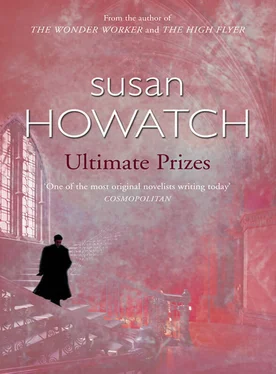

![W. R. Chambers Ltd. - W. & R. Chambers's Books, Suitable for Prizes and Presentation [1892]](/books/571823/w-r-chambers-ltd-w-r-chambers-s-books-suit-thumb.webp)
